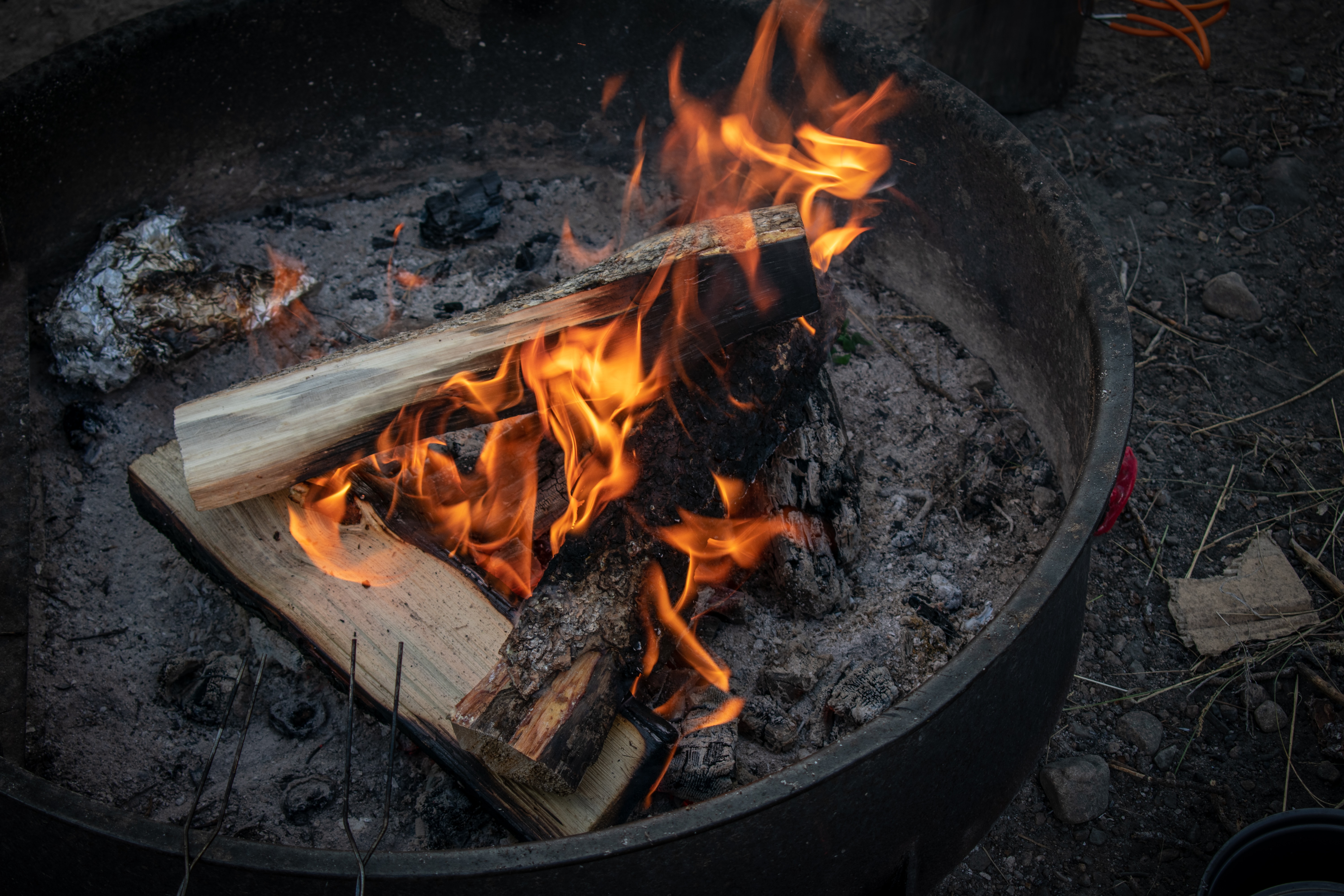Fire Prevention Week comes about every October to remind us all of the dangers of fire and how to keep ourselves and our communities safe. Michigan has seen its share of wildfires, the most recent large-scale fire occurring in 2012 in Luce County.
But we also turn our attention to structural fires. For an RV, a fire can be devastating, move quickly, and leave nothing behind. The National Fire Protection Association (NFPA) estimates that 20,000 RV fires occur annually.
Here’s how you can be proactive and conscious.
Indoor Fire Safety
- Many RV fires are caused by electrical shorts or faulty wiring systems, which can happen even when things are powered down. These types of fires usually smolder and can be difficult for smoke detectors to, well, detect. Make sure all components and systems, including the engine, are serviced as per professional recommendation, and take the time to get new problems fixed immediately (i.e., mice found their way into the walls).
- In our homes, we should be testing our smoke detectors on a monthly basis, replacing the batteries annually. The same goes for our RV’s smoke detectors. We should test them every month of the season when we have them in use.
- Make sure all fire extinguishers are up to date and in accessible locations. You should have at least two fire extinguishers, but three may be better if you have a long motorhome or travel trailer so you can react that much more quickly.
- Avoid burning candles, especially leaving them unattended on a counter or table. They might smell good and offer a pleasant glow, but it’s not worth the risk of forgetting they are lit and potentially causing a fire. If you do have a lit candle, keep it out of reach of children. The same goes for any cooking surface that has an exposed flame. Check and double check that it’s off, and never leave it unattended.
- Have an emergency kit on board your rig or in your tow vehicle. This bag should include important documents (in a fire-proof case) and basic medical supplies.
- Have an emergency plan and go over it with all individuals who will be living and sleeping in the RV. Go over exit points, how to open windows and hatches, where fire extinguishers are located and how to operate them, and where to meet in case of an evacuation – and designate a meeting place everywhere you camp.
- Flat tires and dry wheel bearings can cause friction and eventual fire if not attended to. Make sure tires are inflated to the recommended PSI and that bearings are adequately greased. Ensure all hoses and connections are tight and don’t have any leaks.
- Make sure the power cord for your RV is in good condition and of suitable gauge wire to handle the electrical load.
- Unplug appliances when not in use.
Outdoor Fire Safety
- Keep campfires a safe distance from the RV and use only designated campground rings. Always extinguish campfires thoroughly before leaving the campsite or retiring to the RV.
- Never discard a match or cigarette on the ground. Keep a bucket of sand handy for extinguishing these items, or toss them into the campfire.
- Keep all gasoline and diesel fuel tanks and any other combustibles away from campfires and in appropriate containers.
- Set off celebratory fireworks away from campsites. Find a beach or open area.
- Pay attention to neighboring sites and help cultivate a safe environment for everyone. Help should a fire break out.
- If there is a wildfire, pay attention to instructions for an evacuation.
Resource: NFPA has additional tips for fire prevention and safety in the event of a fire. There are lots of kid activities, too, that help young children and young adults learn about fire prevention and safety in a fun, educational way.

